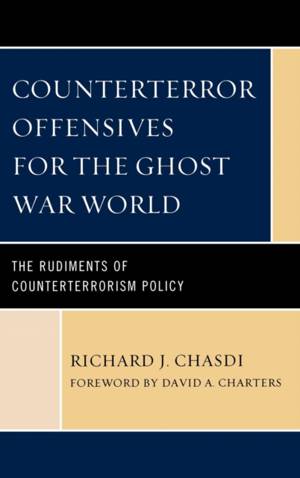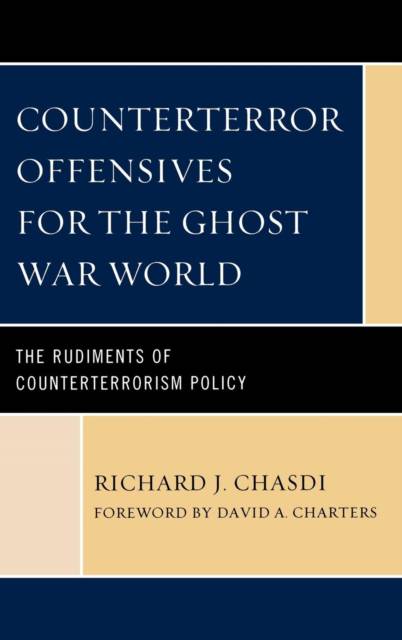
- Afhalen na 1 uur in een winkel met voorraad
- Gratis thuislevering in België vanaf € 30
- Ruim aanbod met 7 miljoen producten
- Afhalen na 1 uur in een winkel met voorraad
- Gratis thuislevering in België vanaf € 30
- Ruim aanbod met 7 miljoen producten
Zoeken
Counterterror Offensives for the Ghost War World
The Rudiments of Counterterrorism Policy
Richard J Chasdi
Hardcover | Engels
€ 373,45
+ 746 punten
Omschrijving
In Counterterror Offensives for the Ghost War World: The Rudiments of Counterterrorism Policy, Richard J. Chasdi has written a groundbreaking quantitative analysis that provides insight into which types of counterterror practices work best and which types perform poorly in particular operational environments and circumstances. In the process, Chasdi provides essential qualitative descriptions of national security institutions, stakeholders, and processes to frame his results in ways that tie those findings to historical and contemporary political developments.
Specificaties
Betrokkenen
- Auteur(s):
- Uitgeverij:
Inhoud
- Aantal bladzijden:
- 908
- Taal:
- Engels
Eigenschappen
- Productcode (EAN):
- 9780739107942
- Verschijningsdatum:
- 6/07/2010
- Uitvoering:
- Hardcover
- Formaat:
- Genaaid
- Afmetingen:
- 155 mm x 234 mm
- Gewicht:
- 1596 g

Alleen bij Standaard Boekhandel
+ 746 punten op je klantenkaart van Standaard Boekhandel
Beoordelingen
We publiceren alleen reviews die voldoen aan de voorwaarden voor reviews. Bekijk onze voorwaarden voor reviews.








